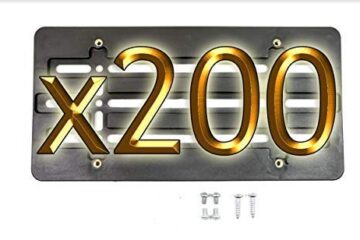Dexron Vi Vs Mercon Lv: Which Trans Fluid Is Right for Your Car?
Dexron vi and mercon lv are both automatic transmission fluids used in modern cars, but they are not interchangeable. Dexron vi and mercon lv are two of the most commonly used automatic transmission fluids (atfs) available today.
While they may appear to be interchangeable, they are not. Each is designed to meet specific performance standards and requirements for different makes and models of cars. Understanding the differences between these two atfs can help you choose the right one for your car, ensure optimal performance and avoid costly repairs down the road.
In this article, we’ll explore the differences between dexron vi and mercon lv to help you make an informed decision when it comes to maintaining your vehicle.
Understanding Transmission Fluids
Transmission fluids are essential for the smooth running of your vehicle’s transmission. They serve multiple purposes, including lubricating moving parts, cooling, and cleaning. There are two main types of transmission fluids: dexron vi and mercon lv. Dexron vi is designed for general motors vehicles, whereas mercon lv is designed for ford vehicles.
Both types of fluids have unique properties that provide different benefits to your transmission, including enhanced performance, better fuel efficiency, and longer lifespan. Some common properties of transmission fluids include viscosity, coefficient of friction, oxidation stability, and flashpoint. Selecting the right transmission fluid for your vehicle is crucial to maintain optimal performance and prevent damage to your transmission.
Difference Between Dexron Vi And Mercon Lv
Dexron vi and mercon lv are both automatic transmission fluids used in vehicles. The composition of dexron vi includes a synthetic blend while mercon lv’s composition is a full synthetic. Dexron vi has better heat resistance and longer lasting capabilities, but it is generally more expensive.
Mercon lv, on the other hand, has a wider range of applications and can be used in a variety of vehicles. However, it tends to break down faster and requires more frequent replacement. When deciding which one to use, it’s important to consider factors such as the specific make and model of the vehicle, driving conditions, and manufacturer recommendations.
Ultimately, the choice between dexron vi and mercon lv depends on individual preferences and needs.
Which Fluid Is Right For Your Car?
Choosing the right transmission fluid is essential in maintaining the longevity of your car. When making a decision, it is important to consider key factors such as compatibility with your car, manufacturer recommendations, driving conditions, and personal preferences. Vehicles made after 2006 typically require dexron vi, whereas older models often use mercon lv.
Failure to use the right fluid can result in transmission damage and malfunction. Check your car’s owner manual or consult a trusted mechanic to determine which fluid is best for your vehicle. By making an informed decision, you can ensure a smooth ride and prolong the life of your car.
Changing Transmission Fluid
Changing transmission fluid is crucial for the longevity and performance of your vehicle. Neglecting this routine maintenance can result in costly repairs and breakdowns. Experts suggest changing transmission fluid every 30,000-60,000 miles, depending on your vehicle’s make and model. To change transmission fluid, you will need a few basic tools and the recommended fluid type for your vehicle.
Always refer to your owner’s manual for specific instructions. Here are a few hacks to make changing transmission fluid a bit easier: use a pump to avoid spills, warm up your car to make the fluid flow easily, and replace the drain and fill plugs with magnetic ones to catch any metal debris.
Remember, maintaining your vehicle’s transmission is essential for a smooth and safe driving experience.
Frequently Asked Questions Of Dexron Vi Vs Mercon Lv
What Is Dexron Vi Transmission Fluid?
Dexron vi is a synthetic transmission fluid that is designed for modern automatic transmissions.
What Is Mercon Lv Transmission Fluid?
Mercon lv is also a synthetic automatic transmission fluid that is used in ford vehicles.
Can Dexron Vi Be Used Instead Of Mercon Lv?
Yes, dexron vi can be used as a replacement for mercon lv in most ford vehicles. However, always check the owner’s manual for specific recommendations.
Conclusion
After assessing the key differences between dexron vi and mercon lv transmission fluids, it is clear that both have their unique properties and advantages. Ultimately, the choice between the two boils down to the specific needs and requirements of your vehicle.
While dexron vi provides superior performance and durability in high-stress environments, mercon lv offers better fuel efficiency and a smoother gear shift. When in doubt, always refer to your vehicle’s owner’s manual for the manufacturer’s recommended transmission fluid type. Additionally, it is important to keep in mind that using the wrong type of fluid can lead to a host of issues such as reduced performance, increased wear and tear on your vehicle, and costly repairs.
So regardless of which type of transmission fluid you choose, be sure to make informed decisions that will keep your vehicle running smoothly for years to come.





0 Comments